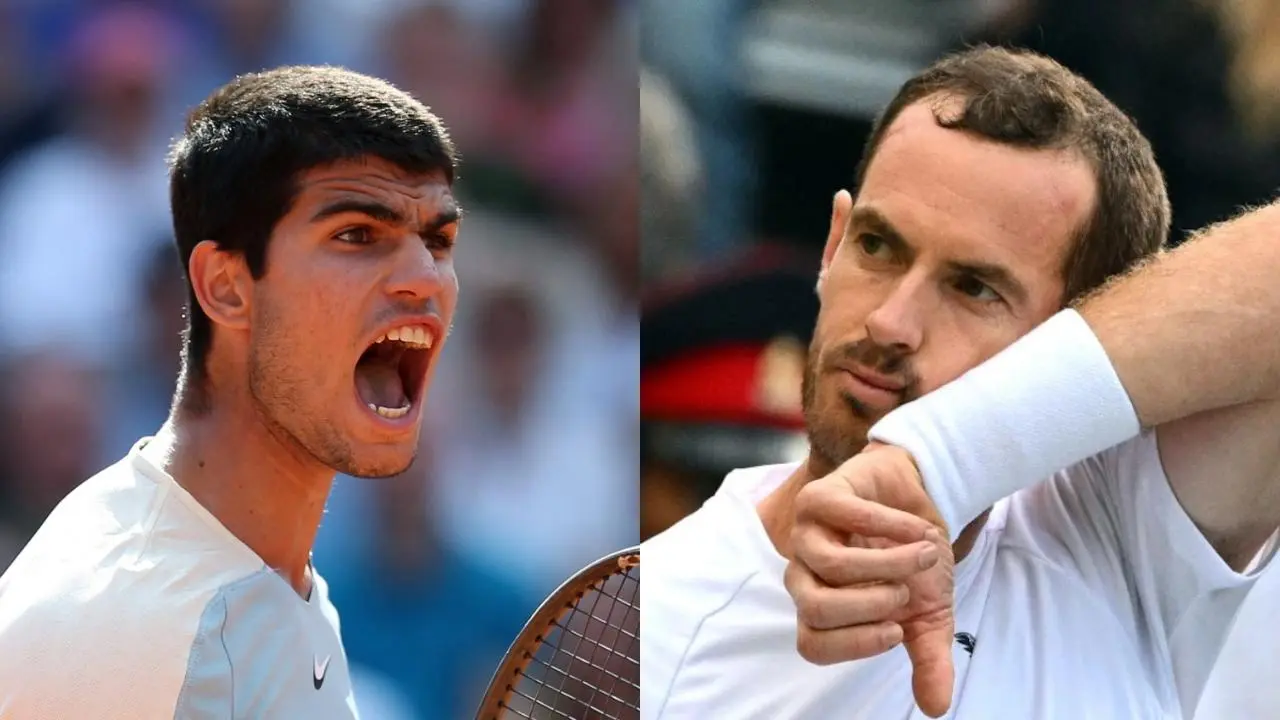
Being a tournament director is no easy task, particularly when it comes to the sensitive issue of awarding wildcards. Richard Krajicek, the director of the Rotterdam Open, is acutely aware of the complexities that come with this responsibility. As he celebrates his 20th anniversary at the helm of the ABN AMRO Open, Krajicek reflects on the pivotal choices he has made throughout his tenure, including one that still weighs heavily on him: the decision to deny a wildcard to the now-world-renowned Carlos Alcaraz back in 2021.
In an insightful interview, Krajicek recounted how, at the time, he opted to grant a wildcard to the more experienced Andy Murray instead of the promising young Spaniard. Alcaraz was only 17 years old and still ranked outside the ATP’s top 100, making him a less obvious choice compared to Murray, who had already cemented his legacy as a three-time Grand Slam champion and former world No. 1. Krajicek explained, “Sometimes things go well, sometimes things go against you. In 2021, Alcaraz asked for a wildcard to play in Rotterdam. I preferred to give that to Andy Murray. You don’t want that to happen again, to say ‘no’ to tomorrow’s number one.”
Looking back, Krajicek’s reasoning at the time was understandable. Murray’s experience and appeal were undeniable; he was a well-known figure who could draw crowds and media attention. However, in hindsight, Krajicek acknowledges that saying “no” to Alcaraz was a significant oversight, particularly as the 2021 season turned out to be the breakout year for the young Spaniard. Later that year, Alcaraz clinched his first ATP title at the Croatia Open and finished the year ranked No. 32 in the world. The following year, he made history by winning his first Grand Slam title at the US Open and becoming the youngest-ever world No. 1, showcasing his extraordinary talent and potential.
Alcaraz’s rise has been meteoric, and his absence from the Rotterdam tournament, due to that initial snub, is a reminder of the unpredictable nature of talent identification in sports. Following the missed opportunity in Rotterdam, Alcaraz focused his efforts in South America, where he participated in various tournaments in Argentina and Brazil during the ATP’s post-Australian Open swing. This strategic decision allowed him to gain valuable experience and continue his ascent in the ATP rankings.
Krajicek’s reflections serve as a learning experience for him as he aims to avoid repeating such mistakes in the future. He has recently awarded wildcards to several young and promising players, including the 18-year-old Croatian Dino Prizmic. Prizmic has already made headlines by taking a set off world No. 1 Novak Djokovic at the Australian Open, demonstrating that he is one to watch. Krajicek recognizes the importance of nurturing young talent, understanding that providing these athletes with opportunities to compete on a larger stage can be beneficial not just for their careers but also for the tournament itself.
This year, the Rotterdam Open promises to deliver another high-quality lineup of players. The event will be headlined by newly crowned Australian Open champion Jannik Sinner, who has quickly established himself as one of the most exciting players in the sport. Alongside Sinner, the tournament will feature a strong contingent of top-ranked players, including world No. 5 Andrey Rublev, world No. 6 Holger Rune, and world No. 8 Hubert Hurkacz. Each of these players brings a unique style and skill set to the competition, ensuring that fans can expect thrilling matches and high-stakes tennis.
However, there is noteworthy news regarding the defending champion, Daniil Medvedev. He has announced his withdrawal from the tournament as he continues to recover from his grueling run at the Australian Open, where he spent over 24 hours on the court during his journey to the final. Medvedev’s absence leaves a significant gap in the tournament, but it also opens the door for other players to capitalize on the opportunity and showcase their talents in front of a competitive field.
The decisions made by tournament directors like Krajicek can have lasting implications for both players and events. As Krajicek looks to the future of the Rotterdam Open, he carries the weight of past decisions with him. He understands the fine line between nurturing young talent and making choices that could impact the event’s reputation and success. With a commitment to recognizing and supporting promising players, he hopes to build a tournament that not only celebrates established stars but also provides a platform for the next generation of tennis champions.
In conclusion, Krajicek’s reflections on his experiences highlight the challenges and complexities inherent in the role of a tournament director. As the Rotterdam Open approaches, excitement builds around the high-caliber players set to compete. Krajicek’s lessons learned from past decisions will undoubtedly inform his choices moving forward, as he seeks to ensure that the tournament remains a premier event in the ATP calendar while simultaneously fostering the growth of emerging talent. The anticipation for this year’s tournament is palpable, and fans are eager to see how these dynamics will unfold on the hard courts of Rotterdam.
Leave a Reply